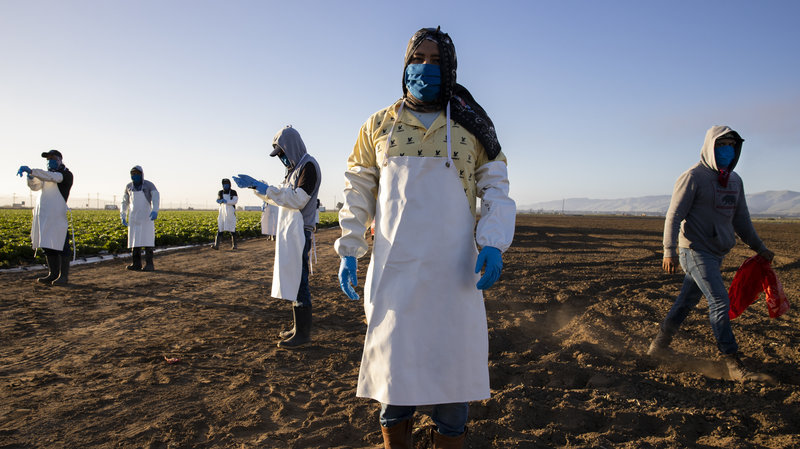Georgia ag commissioner pushes for a pause on proposed H-2A visa program wage increases

Last month, Georgia Agriculture Commissioner Tyler Harper penned a letter to Georgia’s Congressional Delegation urging members to take action to pause the Biden Administration’s proposed H-2A Program Adverse Effect Wage Rate increase for 2024.
The proposed increase would add an estimated $50 million to Georgia producer's on-farm labor costs in 2024 and comes as farmers are already facing sky-high input costs and inflation, a report from the Georgia Department of Agriculture claims.
The commissioner claims that "this arbitrary rate increase will have a devastating impact on Georgia’s farm families and will ultimately lead to increased food costs for Georgia consumers."
Commissioner Harper’s full letter is below:
Honorable Members of the Georgia Delegation,
I am writing to you today on behalf of Georgia’s farm families to express my immense concern over the upcoming H-2A Program Adverse Effect Wage Rate (AEWR) increase supported by the Biden Administration. Georgia farmers are already facing unprecedented challenges from sky-high fuel and fertilizer prices to supply chain disruptions to significant crop loss due to severe weather events like Hurricane Idalia. Implementing this policy – at a time when our farmers can least afford it – will have a devastating impact not only on our state’s #1 industry but on every household across our state.
Earlier this year, I was grateful for Senator Ossoff’s bipartisan support of the Farm Operations Support Act with Senator Tillis of North Carolina to reduce food costs for American consumers by reverting the AEWR to the December 2022 rate for the remainder of 2023. While this legislation fell short of becoming law, Georgia’s Congressional Delegation must move to protect our state’s number one industry by supporting a freeze on the proposed AEWR increase scheduled to go into effect in 2024. Without immediate action to prevent these increases from going into effect, Georgia farmers will be forced to take drastic measures to stay afloat, including making production cuts – negatively impacting our state’s economy, and increasing prices for consumers at the grocery store.
We are incredibly proud that 96% of Georgia’s roughly 42,000 agricultural operations are family farms. Many of these family operations rely heavily on the H-2A program to secure the labor needed to harvest their crops and bring them to market. Georgia farms employ around 35,000 H-2A laborers – roughly 9% of all US H-2A laborers. Right now, labor already accounts for roughly 40% of on-farm expenses, and the Biden Administration’s 7% increase to the AEWR would force Georgia producers to pay more than $50 million in additional H-2A wages compared to 2023. Given the significant increases in nearly every input cost and the significant crop losses caused by everything from hail to hurricanes to untimely freezes, it is not a stretch to say the AEWR increases could be the final nail in the coffin for numerous family farms across our state.
As one of the leading agricultural states in the nation, the H-2A program plays an important role in the success of our agriculture industry, but the program is quickly reaching a breaking point where the cost of using the program significantly outweighs its benefits. It is critical to make the necessary changes to improve the H-2A program’s viability, and supporting a freeze on the AEWR is an important first step.
The people of Georgia – our farm families, trade associations, local elected officials, and the men and women across our state whom I was elected to represent – are united in urging you to stop the proposed AEWR increase for 2024. The consequences of such an increase would have a long-lasting, negative impact on an industry that is essential to Georgia's economy and those whose lives depend on it—and an immediate reversal is the only solution. I sincerely hope that you will take action to protect Georgia farmers and consumers and protect Georgia’s number one industry.















































